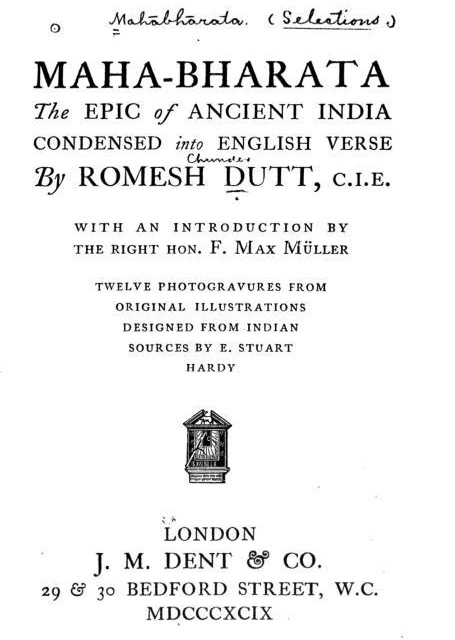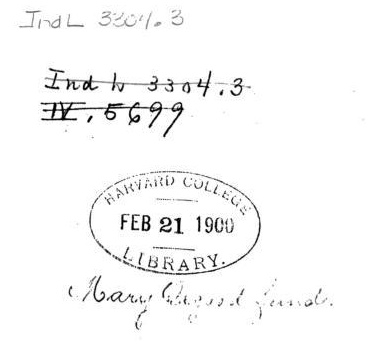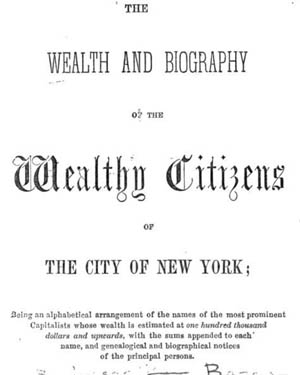…I realize I was over-hasty in dismissing the recent additions made since book scanning resumed earlier this month. True, many of the fine wines in the cellar are there only for the tasting, but the vintage stuff can be drunk freely, and there are already some wonderful 19th century titles, at this point mostly from Harvard. The surest way to find them is to search by date, or by title and date. Specify a date range in advanced search or simply enter, for example, “date: 1890” and a wealth of fully accessible texts comes up, any of which can be linked to from a syllabus. An astonishing resource for teachers and students.
The conclusion: Google Print really is shaping up to be a library, that is, of the world pre-1923 — the current line of demarcation between copyright and the public domain. It’s a stark reminder of how over-extended copyright is. Here’s an 1899 english printing of The Mahabharata:

A charming detail found on the following page is this old Harvard library stamp that got scanned along with the rest:

Category Archives: scan
google print’s not-so-public domain
 Google’s first batch of public domain book scans is now online, representing a smattering of classics and curiosities from the collections of libraries participating in Google Print. Essentially snapshots of books, they’re not particularly comfortable to read, but they are keyword-searchable and, since no copyright applies, fully accessible.
Google’s first batch of public domain book scans is now online, representing a smattering of classics and curiosities from the collections of libraries participating in Google Print. Essentially snapshots of books, they’re not particularly comfortable to read, but they are keyword-searchable and, since no copyright applies, fully accessible.
The problem is, there really isn’t all that much there. Google’s gotten a lot of bad press for its supposedly cavalier attitude toward copyright, but spend a few minutes browsing Google Print and you’ll see just how publisher-centric the whole affair is. The idea of a text being in the public domain really doesn’t amount to much if you’re only talking about antique manuscripts, and these are the only books that they’ve made fully accessible. Daisy Miller‘s copyright expired long ago but, with the exception of Harvard’s illustrated 1892 copy, all the available scanned editions are owned by modern publishers and are therefore only snippeted. This is not an online library, it’s a marketing program. Google Print will undeniably have its uses, but we shouldn’t confuse it with a library.
(An interesting offering from the stacks of the New York Public Library is this mid-19th century biographic registry of the wealthy burghers of New York: “Capitalists whose wealth is estimated at one hundred thousand dollars and upwards…”)
